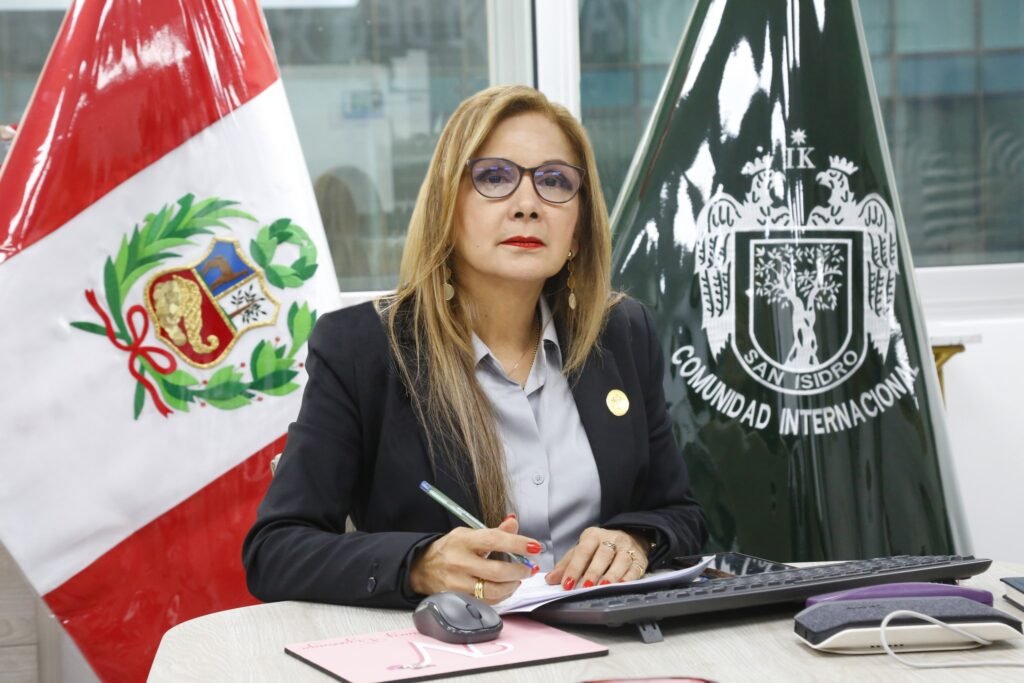Nancy Chiabra alcaldesa de Bellavista año 1986 stands out as a pivotal figure in the history of Bellavista, Callao, Peru. Her election as the first female mayor of the district marked a groundbreaking moment for women in Peruvian politics. Chiabra’s tenure, during a period of economic and political turmoil, showcased her determination, innovative leadership, and commitment to community development. In this article, we delve into her early life, her achievements as mayor, the challenges she faced, and her enduring legacy.
Early Life and Entry into Politics
Born in Callao, Nancy Chiabra Rondón grew up in a community-oriented environment that deeply influenced her later pursuits in public service. Her natural inclination toward social welfare and her strong leadership abilities became apparent early in her career. By the mid-1980s, her vision for Bellavista and her connection with the community propelled her into the political spotlight.
The election of Nancy Chiabra alcaldesa de Bellavista año 1986 marked a transformative moment. Her campaign focused on improving infrastructure, expanding access to basic services, and promoting social inclusion, which resonated deeply with the residents of Bellavista.
A Vision for Bellavista: Key Achievements
During her term, Nancy Chiabra implemented several projects that significantly improved the lives of Bellavista’s residents. Her administration was driven by a mission to modernize the district and uplift its most vulnerable populations.
Infrastructure Modernization
One of her administration’s most notable accomplishments was the development of infrastructure. Chiabra prioritized road rehabilitation, drainage systems, and public lighting. These projects not only enhanced the district’s functionality but also created safer and more accessible spaces for residents.
Expanding Essential Services
A critical focus of her leadership was ensuring access to basic services such as clean water, electricity, and waste management. Many neighborhoods in Bellavista benefited from these expansions, which addressed long-standing issues and improved public health and hygiene.
Social Programs for Inclusion
Nancy Chiabra was a staunch advocate for inclusivity. Her administration introduced several initiatives aimed at supporting women, the elderly, and people with disabilities. For instance, she facilitated the establishment of the “Casa del Maestro,” a space designed to provide resources and benefits for retired educators. This initiative demonstrated her commitment to creating opportunities for underrepresented groups.
Economic and Employment Initiatives
Recognizing the importance of economic stability, Chiabra’s administration also introduced vocational training programs to equip residents with skills for the job market. These efforts not only reduced unemployment but also contributed to the local economy’s growth.
Challenges Faced During Her Tenure
Nancy Chiabra alcaldesa de Bellavista año 1986 faced numerous challenges during her term, many of which were tied to the broader political and economic environment in Peru.
Navigating Economic Instability
The 1980s were a period of hyperinflation and financial crisis in Peru. Municipal budgets were tight, forcing Chiabra to seek innovative solutions to fund development projects. Her ability to deliver results under such constraints highlighted her resourcefulness and dedication.
Gender Barriers and Political Resistance
As the first female mayor of Bellavista, Nancy Chiabra broke significant barriers but also faced resistance from entrenched political structures and societal norms. Her success demonstrated the capability of women leaders to manage and overcome adversity.
Addressing Security Concerns
Chiabra’s tenure coincided with the rise of terrorism in Peru, including threats from groups like Sendero Luminoso. These security issues created additional hurdles in implementing projects and ensuring the safety of residents.
The Legacy of Nancy Chiabra
The impact of Nancy Chiabra alcaldesa de Bellavista año 1986 is still felt today. Her leadership not only transformed Bellavista during her time in office but also set a precedent for future leaders, particularly women, in local governance.
A Trailblazer for Women in Politics
Chiabra’s election and successful tenure inspired many women to pursue political roles in Peru. She demonstrated that inclusive and effective leadership could thrive in environments traditionally dominated by men.
Lasting Contributions to Bellavista
The infrastructure improvements and social programs implemented under her leadership continue to benefit the district. Her focus on sustainable development and community well-being left a lasting mark on Bellavista’s trajectory.
Conclusion
Nancy Chiabra alcaldesa de Bellavista año 1986 was more than just a political figure; she was a visionary leader who championed progress, inclusivity, and resilience in the face of challenges. Her efforts to improve infrastructure, expand services, and support marginalized groups have secured her place in the history of Bellavista and Peru as a whole.
Her story serves as an inspiration for leaders everywhere, reminding us that true leadership is about serving the community and fostering change that lasts beyond one’s tenure.
Frequently Asked Questions (FAQs)
1. Who is Nancy Chiabra?
Nancy Chiabra was the first female mayor of Bellavista, Callao, elected in 1986. She is known for her impactful contributions to infrastructure and social programs.
2. What were Nancy Chiabra’s main achievements as mayor?
Her achievements include improving roads, expanding basic services, creating social programs for inclusion, and establishing resources like the “Casa del Maestro.”
3. Why was her tenure significant for women in politics?
Her election as the first female mayor of Bellavista broke gender barriers and inspired more women to participate in political leadership roles in Peru.
4. What challenges did Nancy Chiabra face during her term?
Chiabra faced economic instability, political resistance, and security concerns due to the rise of terrorism in Peru.
5. How is Nancy Chiabra’s legacy remembered today?
She is remembered as a trailblazer for women in politics and a leader who transformed Bellavista through her commitment to infrastructure, inclusivity, and community development.
